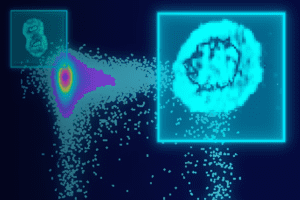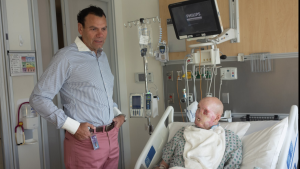Early recognition of addiction signs is crucial. It helps prevent the escalation of addictive behaviours through timely intervention.
Identifying early signs of addiction in oneself is essential for seeking timely help. Early detection and intervention can significantly alter the course of addiction, promoting recovery and enhancing overall well-being. Recognising these signs allows individuals to address addictive behaviours before they develop further, making intervention efforts more effective.
What is Addiction?
Addiction is defined as a chronic, relapsing disorder marked by a compulsion to seek and use substances or engage in behaviours, despite the occurrence of negative consequences. This condition reflects a complex interplay between neurobiological, genetic, and environmental factors.
Neuroscientific studies reveal that addiction largely stems from disruptions in the dopamine system, which plays a pivotal role in reward, motivation, and pleasure. Drugs of abuse can significantly alter dopamine levels, enhancing or diminishing its activity, which in turn affects decision-making, risk assessment, and self-control. For instance, dopamine pathways, such as the mesostriatal and nigrostriatal pathways, are crucial for understanding how habitual and goal-directed behaviours become maladaptive in substance use disorders (SUDs).
Further research highlights that addiction involves not just the increase in dopamine but also its interaction with other neurotransmitters like serotonin. These changes can affect various brain regions, leading to the compulsive drug-seeking behaviours that characterise addiction. For example, alterations in dopamine levels can either increase motivation when they are moderately elevated or decrease it when excessively high, which can lead to a loss of interest in natural rewards.
Studies have also demonstrated that genetic factors contribute to addiction by affecting brain cell types and their regulatory elements, which may predispose individuals to addiction by influencing how their brain responds to drugs.
The neurobiology of addiction is complex, involving a series of changes in brain structure and function that facilitate an addictive cycle, often characterised by cycles of relapse and remission. This understanding highlights the need for therapeutic strategies that address these underlying biological mechanisms to effectively treat addiction.
Understanding the Spectrum of Addiction
Addiction encompasses a wide range of substances and behaviours, extending beyond the commonly recognised drug and alcohol dependencies. People can develop addictions to various activities and substances that initially provide pleasure or relief from stress.
Substance addictions include not only illegal drugs but also prescription medications, caffeine, and nicotine. For instance, opioids, prescribed for pain relief, can lead to addiction even when used as directed due to their high potential for dependency.
Behavioural addictions, also significant, involve compulsive engagement in activities despite adverse consequences. These can include gambling, which is recognised for its psychological grip akin to substance addiction, internet use, video gaming, and even compulsive shopping or eating. These behaviours activate similar brain mechanisms as drug use, emphasising the reward system and necessitating increasing engagement over time to achieve the same satisfaction or relief.
Understanding that addiction can manifest through various substances and behaviours is crucial for recognizing its signs and seeking appropriate intervention. This broader view helps in identifying and treating addictions that might not involve substances but can be equally disruptive to individuals’ lives.
Recognising Physical Signs
Early physical signs of addiction can be subtle but progressively more apparent. Weight fluctuations are a common indicator; some may experience significant weight loss due to neglect of nutrition, while others might gain weight as a consequence of decreased activity levels or the effects of certain substances. For instance, studies show that nearly 70% of individuals with substance use issues report changes in weight.
Additionally, changes in sleep patterns are noteworthy, with either insomnia or oversleeping being prevalent among those developing an addiction. The disruption of normal sleep architecture, including decreased REM sleep, has been documented in over 40% of cases soon after regular substance use begins.
Energy levels and personal grooming can also offer clues. A noticeable drop in energy and neglect in personal appearance are often reported; about 30% of individuals in the early stages of addiction show a marked decline in maintaining personal hygiene.
These physical signs, when noticed early, can serve as critical alerts to individuals and their loved ones that intervention may be needed.
Behavioural Changes as Early Signs of Addiction
Behavioural changes are profound early indicators of addiction, often preceding more noticeable physical symptoms. These changes are multidimensional, affecting various aspects of an individual’s life and interactions.
Increased Secrecy and Deception
One of the first behavioural signs is an increased level of secrecy regarding activities and habits. This might involve lying about the amount of substance used, the money spent on such substances or activities, or the time spent engaged in these behaviours. The need for secrecy often stems from a growing awareness of the problem and a desire to hide it from friends and family, reflecting the stigma and personal guilt associated with addictive behaviours.
Social Withdrawal
As addiction progresses, there is a notable withdrawal from social and familial engagements. This isolation isn’t just physical but also emotional, as individuals become increasingly engaged in their addictive behaviours. They may skip social gatherings to avoid questions or to have more time to engage in the addictive activity. Social withdrawal is linked with increasing psychological distress, such as depression and anxiety, which can further exacerbate the cycle of addiction.
Neglect of Responsibilities
A significant decline in performance and reliability in professional and personal responsibilities is a clear behavioural sign of addiction. This could manifest as decreased productivity at work, missing deadlines, or a drop in academic performance. In personal life, this might mean neglecting parental duties, household chores, and other obligations. The neglect often occurs because the addiction consumes a significant amount of the individual’s focus and energy, leaving less capacity for other activities.
Changes in Financial Behaviour
Financial difficulties may arise as a consequence of spending significant amounts on substances or addictive activities. This might also include borrowing money, unexpected financial shortages, or even stealing, which are attempts to fund the addiction.
Engagement in Risky Behaviours
Addicted individuals may engage in increasingly risky behaviours to obtain substances or participate in the addictive activity. This could include driving under the influence, using shared needles, or engaging in unsafe sexual practices. These behaviours not only pose a direct risk to the individual but also to others around them.
Psychological Indicators
Psychological changes are significant indicators of addiction, often manifesting before observable physical or social changes. These symptoms can provide early warnings of underlying issues.
Mood Fluctuations
One of the earliest psychological signs of addiction is erratic mood swings. Individuals may experience sudden bouts of irritability, sadness, or euphoria, particularly in relation to their substance use or addictive behaviours. These mood swings often result from the neurochemical imbalances caused by repeated substance use or engagement in addictive activities.
Anxiety and Depression
Anxiety and depression are commonly associated with the early stages of addiction. Individuals might feel anxious or paranoid about obtaining their substance of choice or about the possibility of not being able to engage in their addictive behaviour. Depression can set in as the consequences of addiction begin to impact other areas of life, such as personal relationships and professional responsibilities.
Obsessive Thoughts and Behaviours
Addiction can lead to an obsessive preoccupation with a substance or activity. This might include constant thoughts about the next opportunity to use or engage in the behaviour, planning one’s day around it, and feeling restless or irritable when unable to fulfil these desires.
Cognitive Impairments
Research indicates that addiction can lead to cognitive decline, affecting memory, decision-making, and problem-solving skills. Early signs might include forgetfulness, difficulty concentrating, and making poor judgments, especially in relation to risk assessment.
Denial
Often, individuals showing early signs of addiction are in denial about their situation. They may underestimate the quantity or frequency of their use or the impact it has on their life, rationalising their behaviours as normal or under control.
Seeking Help
Early recognition of addiction signs facilitates timely and effective intervention. Knowing when and how to seek help is vital for a successful recovery.
- Acknowledging the Problem: The first step in seeking help is acknowledging the existence of an addiction issue. This can be challenging, as denial is a common obstacle. Acceptance empowers individuals to take proactive steps toward recovery.
- Consulting Healthcare Professionals: Engaging with healthcare professionals such as psychologists, psychiatrists, or addiction specialists is crucial. These experts can provide a formal diagnosis and tailor treatment plans that may include therapy, medication, or both.
- Support Systems: Accessing support systems like support groups or therapy sessions can provide the emotional and social backing needed. Groups such as Alcoholics Anonymous or online support communities offer peer support, which is instrumental in maintaining long-term sobriety.
- Professional Treatment Programs: Enrolling in professional treatment programs that offer comprehensive care options, including detoxification, counselling, and aftercare planning, is essential. These programs address both the psychological and physiological aspects of addiction.
- Continuous Management: Recovery from addiction is an ongoing process that may include managing relapses. Continuous engagement in recovery activities, ongoing therapy, and support groups are part of a long-term strategy to prevent relapse.
Seeking help at the right time can drastically improve the prognosis for individuals struggling with addiction, leading to better health outcomes and restored personal relationships.
Recognising early signs of addiction is a vital step in preventing the escalation of this complex condition. Understanding the wide spectrum of substances and behaviours that addiction encompasses, alongside acknowledging physical, behavioural, and psychological indicators, equips individuals and their loved ones to seek timely intervention.
Early intervention, through consultation with healthcare professionals and engagement in supportive networks and treatment programs, is essential for effective recovery. Maintaining vigilance and ongoing management through recovery activities and support networks is crucial for long-term success in overcoming addiction. This proactive approach not only enhances the chances of recovery but also supports the individual in regaining a fulfilling life, free from the chains of addiction.
References
- Poisson, C. L., Engel, L., & Saunders, B. T. (2021, November 9). Dopamine Circuit Mechanisms of Addiction-Like Behaviors. Frontiers in Neural Circuits. https://doi.org/10.3389/fncir.2021.752420
- Wise, R. A., & Jordan, C. J. (2021, December 2). Dopamine, behavior, and addiction. Journal of Biomedical Science. https://doi.org/10.1186/s12929-021-00779-7
- Ferrer-Pérez, C., Blanco-Gandía, M. C., & Blanco-Gandía, M. C. (2024, January 23). Neurobiological Theories of Addiction: A Comprehensive Review. Psychoactives. https://doi.org/10.3390/psychoactives3010003














